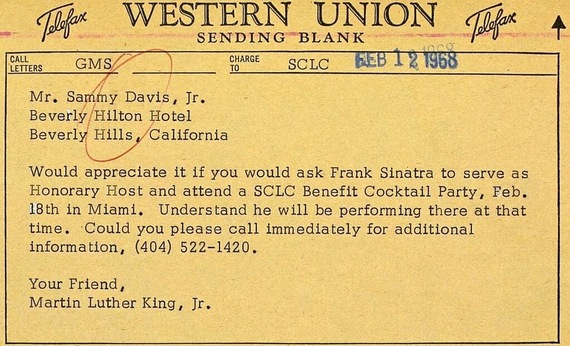Celebrate Martin Luther King Jr. day with a hat from http://t.co/z03orMGdBh #MLKDay
— hats.com (@HatsdotCom) January 20, 2014
The national holiday honoring Dr. Martin Luther King Jr. occurred this past Monday, and like any day of sober reflection it was accompanied by a profusion of brand tweets and follow-up articles (and an @midnight category) dedicated to the crassness of said tweets. This is on the heels of the death of Nelson Mandela, the anniversary of September 11th, and practically any other event that would seem to call for a cautious, respectful approach instead of a glib post with a marketing hashtag attached.
How do these embarrassing posts continue to happen?
In part these posts are driven by the need, bordering on mania, for a constant stream of content to power the social media presence of countless brands. This is especially true when brands outsource their handles to agencies who then lay out elaborate plans to justify the trust and fees that come with managing a brand's handles. The first deliverable for community management teams is typically a communications calendar which goes weeks and even months ahead. The easiest dates to throw in there are holidays and ridiculousness like National Nothing Day (a real day) or Talk Like a Pirate Day. For the most part this is harmless but it does reinforce some notions that can lead to bad content.
Namely, three major misunderstandings about brands on social:
1) People care inherently about what your brand has to say
There may be certain things your brand has authority to speak about, but most consumers don't care what brands have to say about the Super Bowl, or the weekend, or a national holiday. That is, unless they are adding something new and valuable to the conversation.
2) People notice if your brand doesn't say something
I suspect some of the MLK tweets come from brand execs who think that if their brands do not acknowledge the holiday, that they will be faulted for insensitivity. In reality, few people look directly at a brand's profile on most social networks, and most of them are employed by the brand, their contractors, or the competition. Most people experience brand content in their newsfeed (if at all) sandwiched between posts from friends or even celebrities they follow. As I point out above, no one will sit there at the end of Memorial Day and say, "Strange, I didn't see a tweet from JC Penney today about the holiday. They must hate the troops."
3) Communication in social is one-way
In other words the communication calendar, especially accompanied by pre-written copy, can lead to the idea that social channels are just another place for brands to push out a message rather than an opportunity to converse. What wins hearts and minds in social is the ability for brands to be agile and flexible, of the moment and yet not self-involved.
Too much rigidity shuts brands off from the power of real time customer communication that social makes possible. It can also blind them to the common sense approach that there are some topics that don't require the point of view of a brand.
This isn't to say calendars are bad, rather that they need to be coupled with the ability to post spontaneously and proactively and to respond meaningfully to customers. They should be a framework rather than a crutch.
Of course spontaneous posting can just as easily lead to an embarrassing outcome for brands. This is precisely why many marketers feel comforted by a calendar. That's why all of this needs to be yoked together by a community management team that has sound judgement, has been drilled in the brand's history and business inside and out, and is encouraged to be well-read on matters of pop culture, history and current events. It's a cliche to say that a brand can't leave their social presence in the hands of an intern but most cliches have a foundation in truth.
So, is MLK day off limits for brands? Not necessarily. Consumers rightly see any brand communication as inherently promotional so the bar is set high to not come off as self-serving even if you are touting your diversity. Here are two ways a brand can post on a day like MLK day and add value.
1) Does your brand have an actual connection with the historical events that led to the day?
This is tricky, as most brands that existed during the civil rights era were indifferent or even opposed to the movement. There was a great image (see above) that made the rounds on Monday of a Western Union telegram from Martin Luther King Jr. to Sammy Davis Jr. asking him to see if Frank Sinatra would host a benefit for the SCLC in 1968. Had Western Union posted this, without any brand hashtags or phrases, it would have added to the conversation around the day without being self-serving.
2) Can your brand shine the spotlight on others?
Another good example is FedEx who honored the day of service by packing meals for the homeless. They retweeted a news organization's tweet (see above) and kept it very simple, and most importantly called out @stophungernow the organization they were assisting. This takes something that could have been self-serving and elevates it to a chance to raise awareness.
There are ways to honor the spirit of the holiday, or the memory of Dr. King, without making your brand look bad. Or, you can always take a pass instead.
